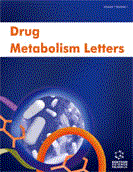Abstract
Intensive Biotransformation studies on Gefitinib could play a significant role in designing and synthesizing new drugs around the core structure of Gefitinib. These studies may be useful in developing an entirely new drug by blocking the metabolic spots in Gefitinib. Gefitinib (Iressa) was the first oral epidermal growth factor receptor (EGFR) tyrosine kinase inhibitor. Gefitinib shows toxicity to cancer cells and has the capability to inhibit the growth of cancer cells. Gefitinib is considered as one of the selective EGFR inhibitors to be available in clinical practice. In 2003, FDA had approved Gefitinib for metastatic non-small-cell lung cancer therapy (NSCLC). However, it was observed that NSCLC Patients who responded to treatment developed resistance to Gefitinib. Hence, in the present study Gefitinib was incubated with hepatocytes to identify both phase-I and Phase-II metabolites. Identified Phase –I metabolites were due to oxidative defluorination, N-dealkylation and loss of morpholine ring. One of the phase-II metabolites identified i.e. the glutathione adduct suggests the need to modify the structure of the drug for higher potency and safety.
Keywords: Drug metabolism, gefitinib, liquid chromatography, mass spectrometry, metabolites.
 63
63














